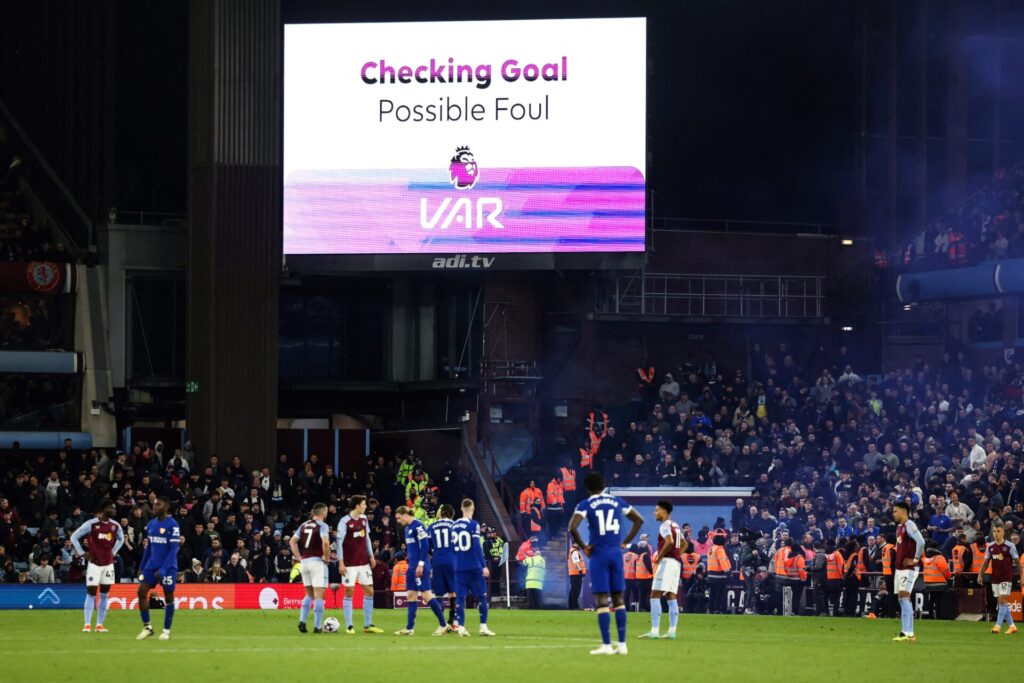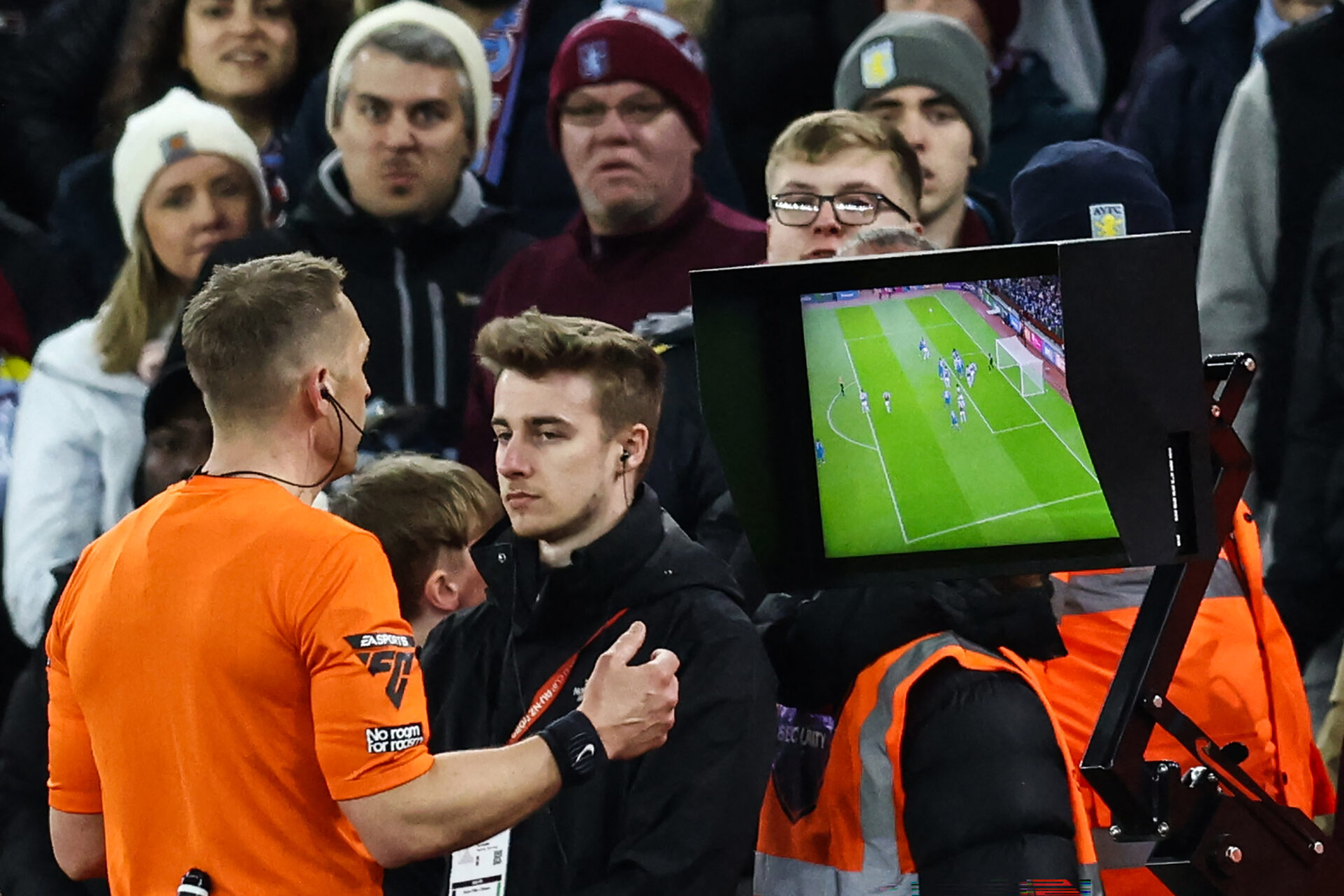The New PGMOL: Leading the Refereeing Revolution
With each passing day, the PGMOL is facing ever increasing scrutiny. Just yesterday, Attacking Football’s post featuring the VAR audio of Christian Romero’s red card against Chelsea, along with the Swedish FA’s rejection of VAR implementation, sparked widespread conversation. These events garnered over eight and a half million views on X. However, Howard Webb’s recent article with Sky Sports appears to herald a revolution in refereeing, particularly concerning their communication.
Before discussing Webb’s quotes from Sky Sports, it’s essential to dispel a common misconception: the belief that the PGMOL refuses to broadcast VAR audio live in order to protect their referees. In reality, it’s ‘IFAB/FIFA’ that prohibits live audio transmission, not the PGMOL itself. Instead, the PGMOL has opted to share the audio through the series ‘Match Officials Mic’d Up’ as a means to effectively communicate with fans.

The Changes Expected:
I would like to focus on the word ‘communicate’, with Webb’s interview with Sky Sports emphasizing the need for efficient, concise, and trustworthy communication between the referee and the fans. This commitment to concisely communicate decisions to the fans can be revealed through Webb’s suggestion that Premier League officials should ‘announce decisions’ on the pitch. This is to ensure that the fans are as ‘equally informed’ as the players.
This is a positive development in providing concise communication to football fans, as long as it is accompanied by the necessary explanations. Perhaps even more promising is that Webb is aware of different ‘examples’ of refereeing, such as those used in ‘FIFA tournaments’. While Webb mentions ‘announcing decisions [onfield]’ explicitly, there is hope that the PGMOL is actively discussing the implementation of the semi-automated offside technology; which has proven successful in numerous competitions.
This tool could greatly benefit referees, as it allows for concise, efficient, and trustworthy communication when calling offsides. Another significant benefit is that it removes a burden from the shoulders of the VAR official. The task of drawing the lines on the players for offside calls appears to be a near-impossible task at times and this tool relieves the referees of it. Referees are subject to the same pressures that players are under, especially in the era of social media. Therefore, any way to reduce unnecessary pressure on referees should be seen as crucial.
PGMOL x Fans and Clubs
Webb also notes in his interview with Sky Sports that he has been working with ‘fan groups’ ‘for some time’. Some critics have claimed that the relationship between fans and referees is ‘fractured’, with VAR cited as the catalyst for this division in recent years. These recently developed communication links with ‘fan groups’ suggest that Webb is aware of this worse-for-wear relationship and is seeking to improve it.
This constant communication will only foster a positive, trusting relationship between fan and referee. However, Howard Webb possesses the self-awareness to know that these relationships are difficult to develop. This is evidenced by Webb’s commitment to ‘meet Nottingham Forest owner – and play him [the] VAR tapes’ following Nottingham Forest expressing their outrage on social media. Despite Nottingham Forest’s unprofessional complaint, the PGMOL handled it professionally and maintained trust in their staff.
The very nature of football is subjective, so it is only natural that fans will disagree on refereeing decisions, in the same way they disagree with a manager’s tactics or a player’s performance. Therefore, the PGMOL must ensure fans understand the rationale behind decisions through efficient, concise, and trustworthy communication—a goal Howard Webb and the PGMOL are committed to achieving.








